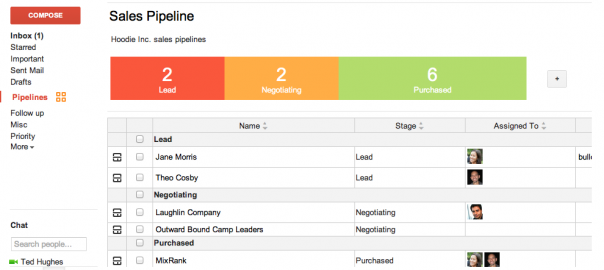If you’re a lean mean startup, you probably don’t have the funds to build a massive sales team or to design a robust inbound marketing program. However, to jumpstart any sales program, you’ll need to track ongoing conversations with prospects and a way to generate qualified cold leads– basically folks who would be a good fit for using (and paying for) your product. At Iterable, we’re in the process of creating a structured sales process, and here are the Chrome extensions and other free tools which we’ve found to be extremely helpful.
1. Streak
Streak is a helpful Chrome extension that turns your Gmail inbox into a CRM platform, which is perfect since most sales and customer service-related conversations happen over email. With Streak, you can create “boxes” for each of your prospects or clients; you can then use these boxes for storing email conversations. You can also design multiple pipelines with various stages (lead, contacted, demo, closed) right inside of Gmail to keep track of where each of your contacts are in the sales process.
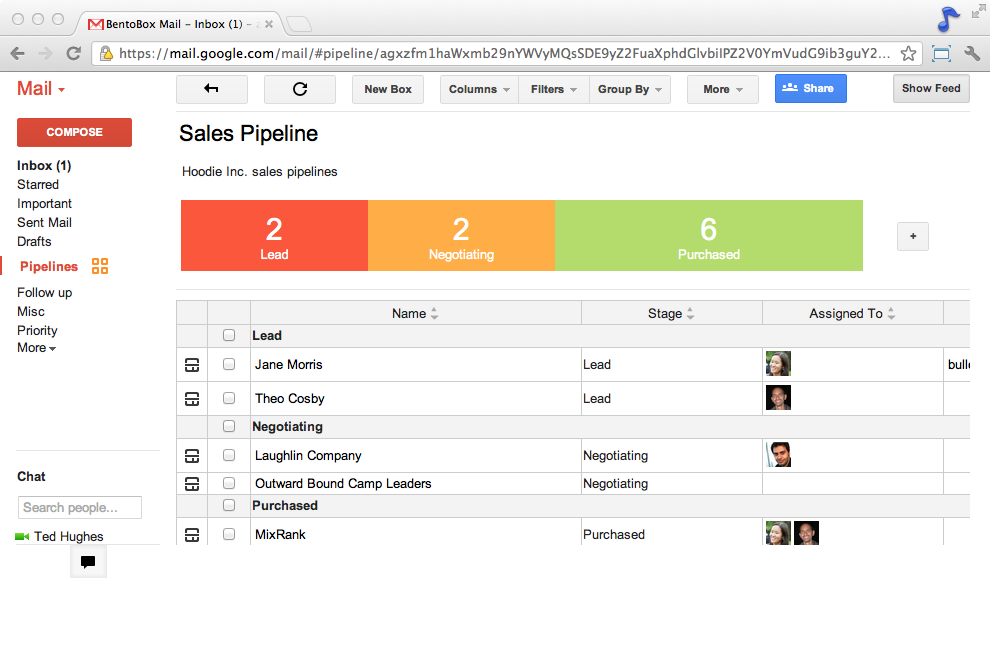
Sales requires persistence and multiple rounds of follow-ups. Streak allows you to snooze emails for reminder purposes or schedule emails to be sent at a later time. Sales emails can also be slightly repetitive in nature. Thus, Streak allows you to store email snippets, so you can reuse a similar message in emails to different people. Just remember to personalize it before you hit “send”!
However, my favorite part of Streak is how it allows you to see if people have viewed your email. If they’ve seen your email, a green eye displayed. If they are currently reading your email, the green eye will be flashing. It’s a little bit sneaky, but also immensely helpful to see if a prospect has seen your message (also beneficial for PR folks to see if a reporter has read your pitch, but I’ll save this for another post on free PR tools for scrappy startups).
![]()
2. Data.com Connect
In my first job out of college, I was a cold leads generator at a startup, meaning I specialized in finding ideal prospects and their contact information. My team aggressively used Jigsaw, which is now Salesforce Data.com Connect, to find lead contact information. It’s basically the “give a penny, take a penny” dish of sales. You submit a company or an individual’s contact info (name, title, company, email, phone number) and get rewarded with points to redeem for another contact’s info. You can also buy contacts for $ 250-1500/year depending on the number of contacts you wish to access. Note, however, that since the contact info is crowdsourced, the information is not always up to date and correct. In general, expect at least 15% of the contacts you receive from Data.com to bounce.
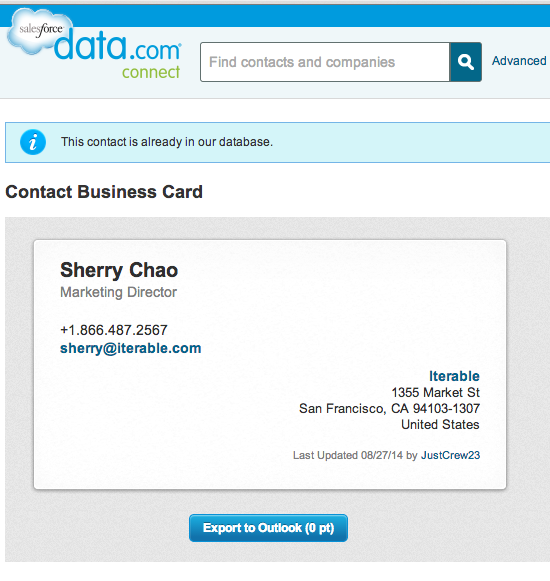
3. Connectifier
Connectifier was built as a tool for recruiters to easily get more information about a job candidate, but it doubles as a super sweet sales tool. It’s a Chrome extension that provides more info about an individual when you land on his/her Linkedin, Twitter, Facebook, Quora, GitHub or other social profile. The additional information provided includes the person’s bio, location, email address and links to his/her other social profiles. It’s a useful tool for learning more about a person’s background, company role and getting their contact info.
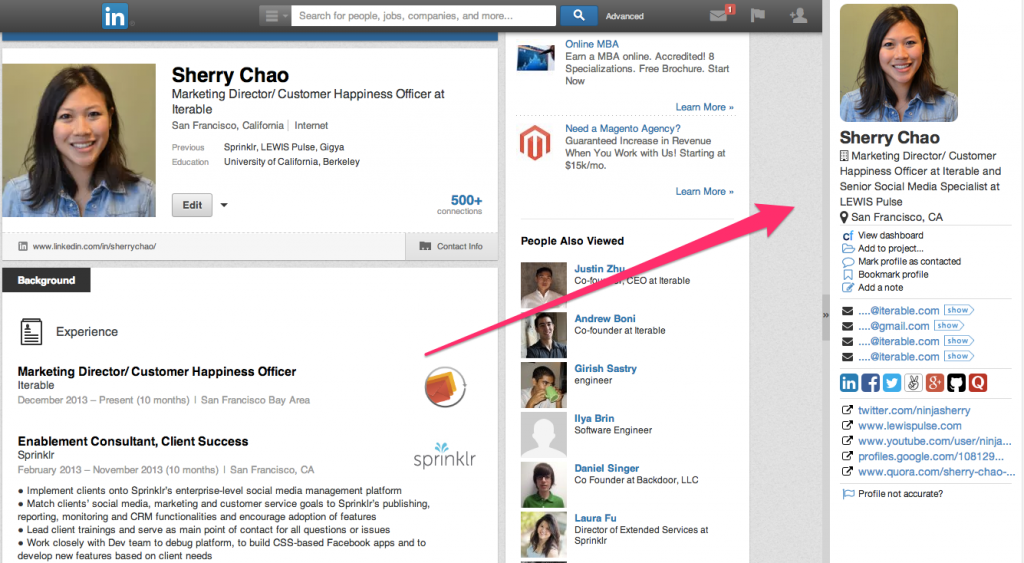
4. Rapportive
Rapportive is a Chrome extension that will show you additional information about a user in a sidebar based on an email address.
Since Rapportive’s acquisition by LinkedIn, it isn’t quite as helpful as it used to be, but it is still helpful in certain situations. For example, if Connectifier does not have a contact’s email, your next best bet is try and guess the person’s email and to use the Rapportive to verify if an email is correct. If it is the correct email, then the Rapportive sidebar will pop up; if it’s not the right email, then the sidebar info will not appear.
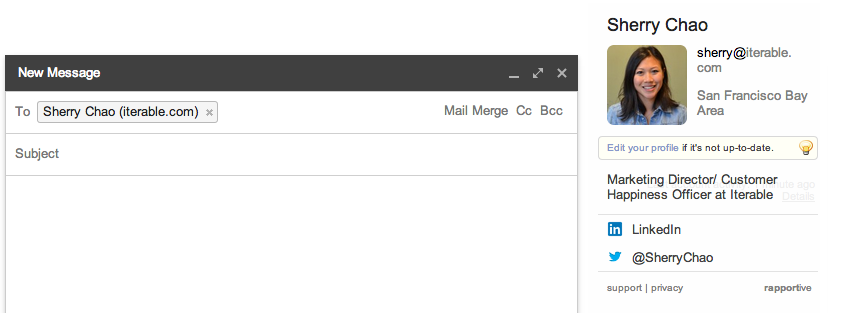
To use it, enter a “potential” email address and see if the Rapportive sidebar shows up with the person’s info. You might need to try a few iterations of the email address (firstname@company.com, firstname.lastname@company.com, etc).
The Rapportive sidebar info also shows up when you hover your mouse over an email address.
5. Ghostery
Ghostery is a browser extension that shows you all the companies that are tracking you when you visit a website. How is this useful for sales? Well, essentially Ghostery shows you the technologies a website is using.
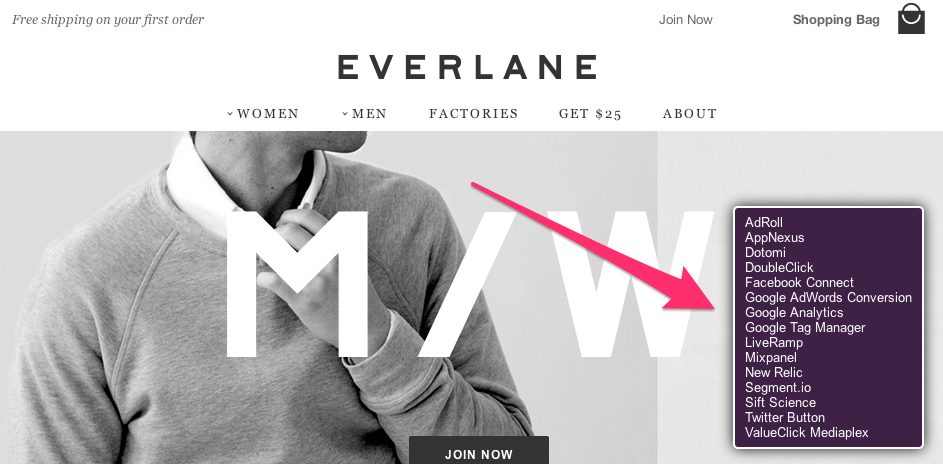
Here is our use case. Since Iterable is an email platform that allows people to A/B test any part of their emails and to send triggered messages based on events, we figured that our ideal client would be very interested in A/B testing and events tracking. As a result, when using Ghostery, we look for websites who are already using Optimizely, Mixpanel and Kissmetrics. This signifies that they are open to learning about other A/B testing, events tracking and analytics products, like Iterable!
6. Good Ol’ Google Related Search
Perhaps you think you’ve left no stones unturned in the world of cold outreach. Or maybe you’re just running low on sales inspiration. Behold, the Google related search– a godsend for finding more prospective companies!
First, simply think of an existing company that’s using your product or another website that is an ideal customer for your product. Next, use the ‘related’ search by entering “related:websiteURL”.
![]()
Bingo. Now you have a whole slew of new prospective companies for outreach.
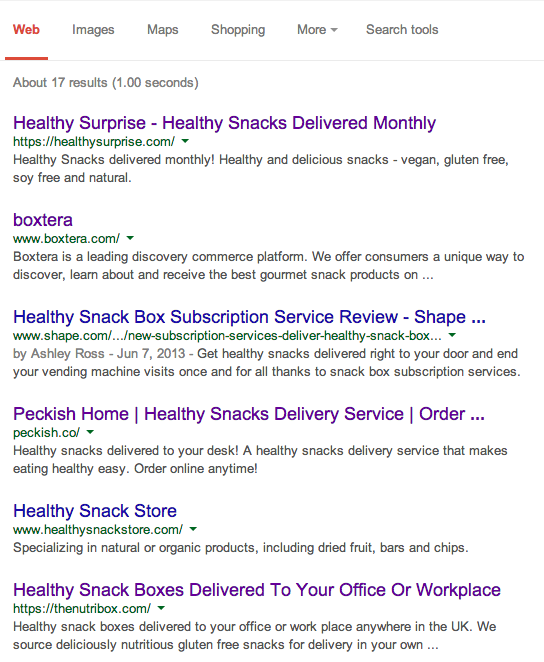
Hopefully you found this post useful for your own sales purposes. Know of any free tools that are missing from this list? Feel free to share them in the comments below!
This post was originally published on the Iterable blog.
Business Articles | Business 2 Community
(538)
Report Post